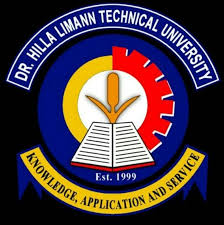|
Getting your Trinity Audio player ready...
|
Following the increasing youth unemployment rate in Ghana, the need for practical skills acquisition to compete favourably in the ever-shrinking job market has become more imperative now than ever.
Technical universities in Ghana had been established with a strategic mandate to offer practical industry-demand technical skills to graduates in Ghana not only for them to be job seekers but also to be job creators.
Professor Elias N. K. Sowley, the Vice Chancellor (VC) of Dr. Hilla Limann Technical University (DHLTU), said this in an interview with the Ghana News Agency (GNA) in Wa. He added that bridging the gap between theory and practice was necessary in building a resilient workforce for Ghana and beyond.
According to the Ghana Statistical Service’s Annual Household Income and Expenditure Survey (AHIES) Labour Statistics Bulletin for the third quarter of 2023, the youth unemployment rate for individuals aged 15 to 35 years was 21.7 per cent. That accounted for about 77.4 per cent of the total unemployed population of the country within that period.
Meanwhile, Prof. Sowley explained that DHLTU, just like any technical university, was strategically positioned to meet the technical skills training needs of the people in the region and beyond. He indicated that DHLTU had established innovative job-oriented technical programmes to train graduates for industries and job creation. The VC, therefore, pointed out that graduates from the DHLTU had a relative competitive advantage in the job market and encouraged the public to patronise that university for their technical training.
Prof. Sowley observed that some graduates from traditional universities resorted to technical universities to acquire skills that would enable them to employ themselves. “I just hope that we will make use of this technical university in the region. We are not making the best use of it, given its potential to empower our teaming youth against unemployment,” he explained.
He indicated that the DHLTU was meant for regular students and anyone wanting to acquire technical skills in any field including artisans. He said, for instance, that the DHLTU was introducing a master’s degree programme and a short course on waste management to offer practical training to young people on waste recycling.
Prof. Sowley disabused the notion that technical universities were preserved for people with weak grades from the second cycle and Technical and Vocational Education and Training (TVET) institutions. He, however, explained that technical university education and training were for people with high intelligence quotient (IQ) since technical skills required smart minds.
Despite the potential of DHLTU to develop a highly resourceful technical workforce for the country and the Upper West Region in particular, it was faced with a serious infrastructure deficit. The majority among them was the lack of student hostels, compelling the students to rent private hostels in town and trek daily to the school for lectures and other academic and recreational activities.
That not only hampered effective academic activities but also negatively affected extracurricular and recreational activities among the students necessary for their holistic development. Prof. Sowley appealed to investors and the private sector to consider partnering with DHLTU to bridge its infrastructure gap and develop the institution.
He stated that investors could provide the infrastructure on build-operate-transfer arrangements or donate such facilities to the university and be honoured in various ways including naming those facilities after the donors.
Source: GNA


